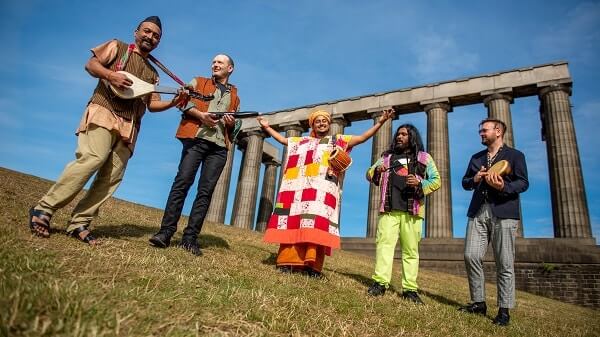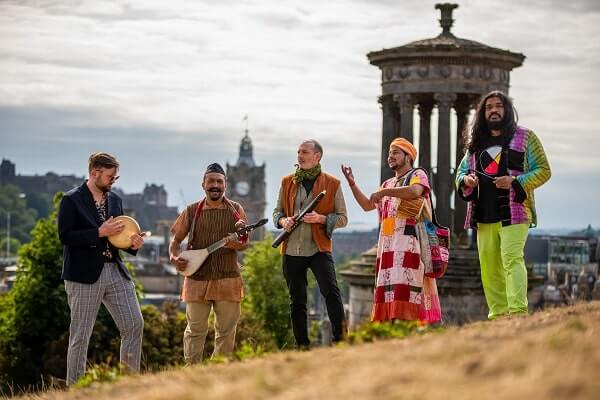The Three Seas, a cross-cultural band comprising two Australian and three Indian musicians, is currently on tour in Australia.
This unique ensemble has been performing across the world for over a decade now, fusing Australian and Indian music styles.
It was Aussie musician Matt Keegan (baritone, clarinet and ewi) that brought the band together. The story dates to 2009 when Keegan went to India for inspiration and new experiences.
“I went to a school in Sydney with some boys with Bengali heritage,” he tells Indian Link. “Their mother, Sutopa Parrab, was a huge music fan and invited me to come stay at her house in Santiniketan, West Bengal. My wife’s mother was also born in India so we both were keen to visit India some day.”
And when they finally did find time to travel in 2009, it was for their honeymoon. This was when Parrab introduced Keegan to many musicians, including Raju Das Baul (vocalist, khamak), Deo Ashis Mothey (vocals, esraj, dotora, guitar, murchunga) and Gaurab Chatterjee (drums, dubki).
“After this initial meeting, I thought these three interesting and diverse Indian musicians would blend musically very well with some of my colleagues from Australia,” Keegan describes.
And so, The Three Seas project was born with Australian Brendan Clark (bass guitar, effects) joining the troupe.
Fusing Australian and Indian music
The band blends modern Australian jazz with West Bengali folk music, electro-dub and funk.
“We love experimenting with sounds, textures and grooves,” Keegan explains. “We always take into account the space we are playing, the people we are playing for, and the mood we create together. Listeners will hear baul gaan (Bengali folk), Himalayan folk music, original jazz, and groove-based music that blends folk instruments with western instruments and electronic sounds in an organic way.”
(Baul music originates from a community of wandering minstrels who practice a unique form of spirituality that is a blend of Hinduism, Islam, and Sufism.)

While the group members are sensitive and respectful towards their diverse influences in music, sometimes their ideas do take time to ripen. “The project is a safe space to try things out free from judgement; some ideas we discard, others turn into material we use exclusively on recordings while the majority are incorporated into our live set.”
In the last fifteen years working together, Keegan says their collaboration has only “marinated and matured”.
He says, “I have a much better understanding of the poetry that we incorporate in the music and that informs the sound of each piece. The Indian musicians also have developed a much better understanding of the way us Aussies contribute musically.”
Their first big tour in Australian was in 2017; the response was welcoming and the band has not looked back since.
Last year, they recorded their fourth album Vimana, at the Real World Studios in the UK. Haveli (2013) was recorded in a guest house in the Rajasthani desert.
Fathers, Sons & Brothers (2017) was recorded at Free Energy Device studios in Sydney. Then came Afterlife (2018-2020).
“This was a real studio album with many of the parts recorded remotely and put together in isolation in the studio during the pandemic.”
Now playing!
Next for The Three Seas is an eleven-track project.
“We have each contributed a couple of original compositions and chose the final eleven tracks from about 15 potential pieces,” Keegan reveals. “We rehearsed every night after our show at the Edinburgh Fringe Festival (nine shows in a row).”
His favourites are the new baul songs – Bhalo Basa and Rongmohol. The Three Seas are currently on a tour in Australia (March 17 – April 15), playing a variety of venues from concert halls to intimate clubs.
Read More: Kiara Rodrigues: A rising voice in Australian Country Music





